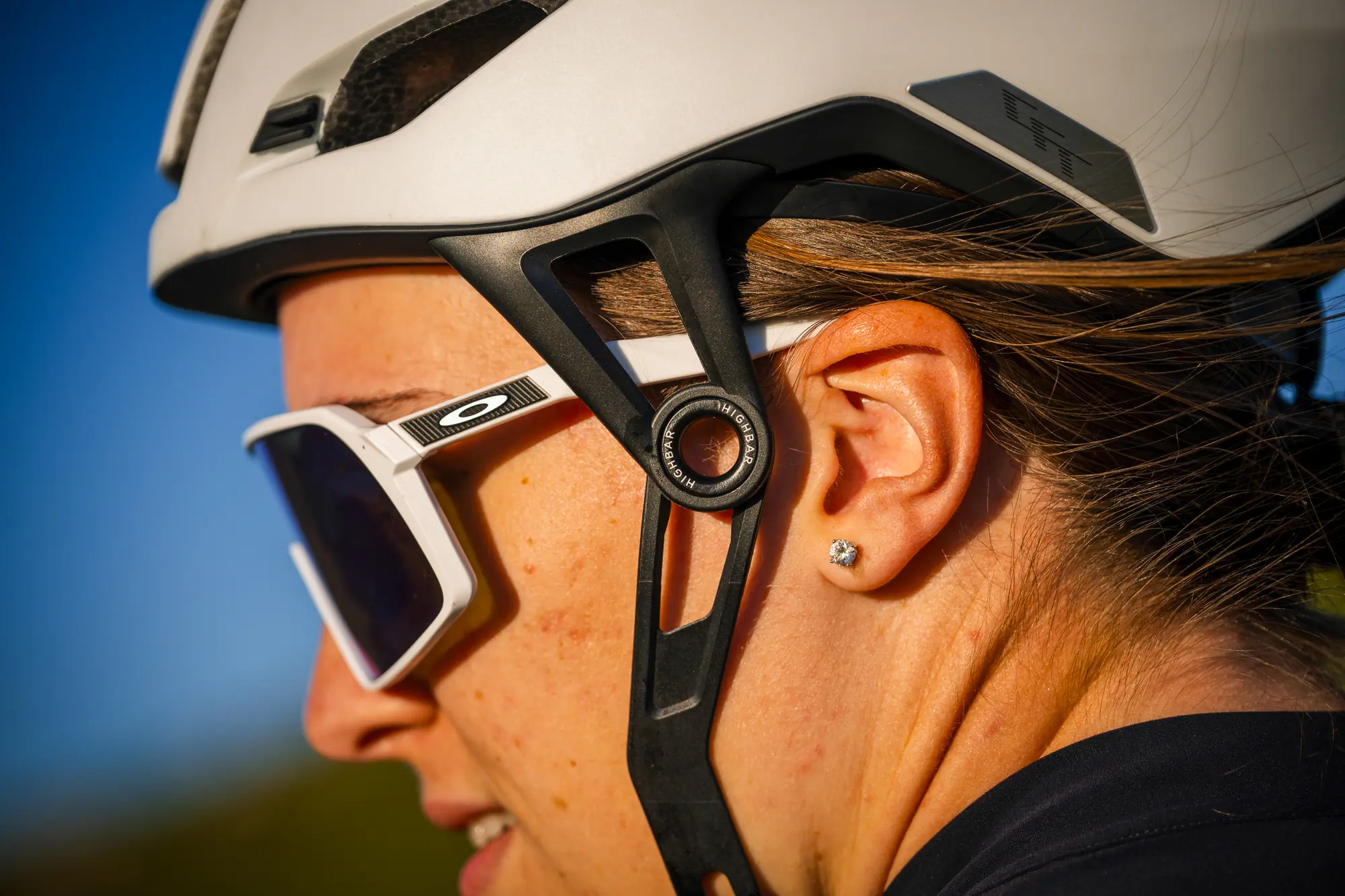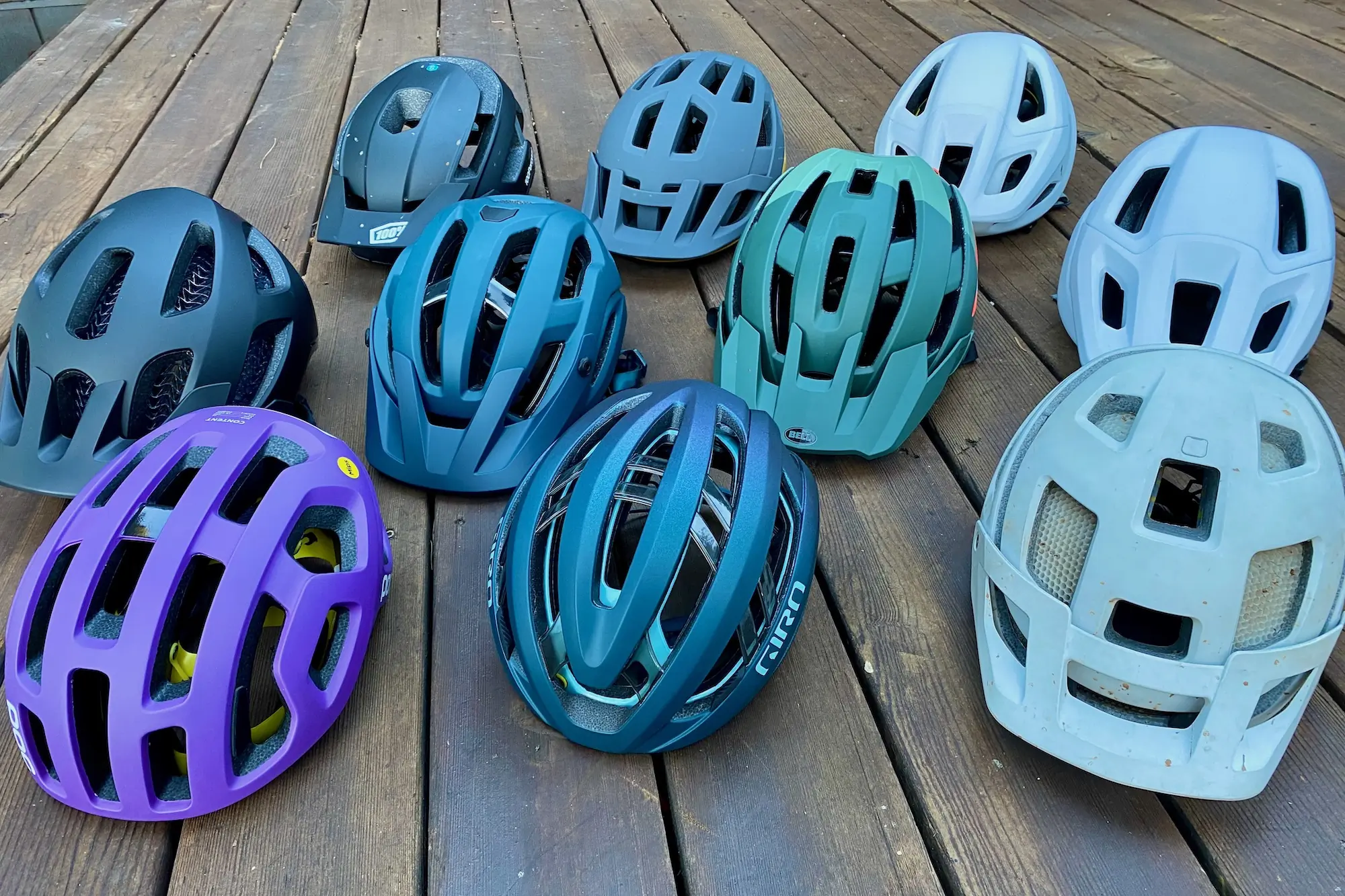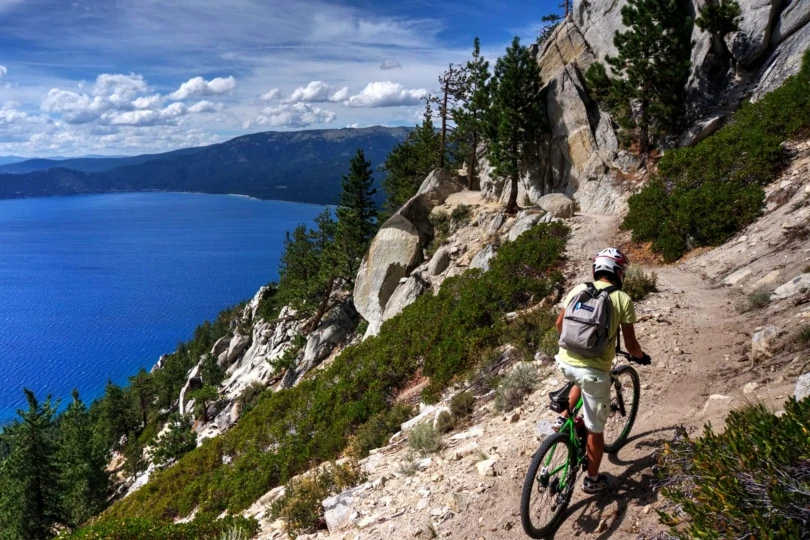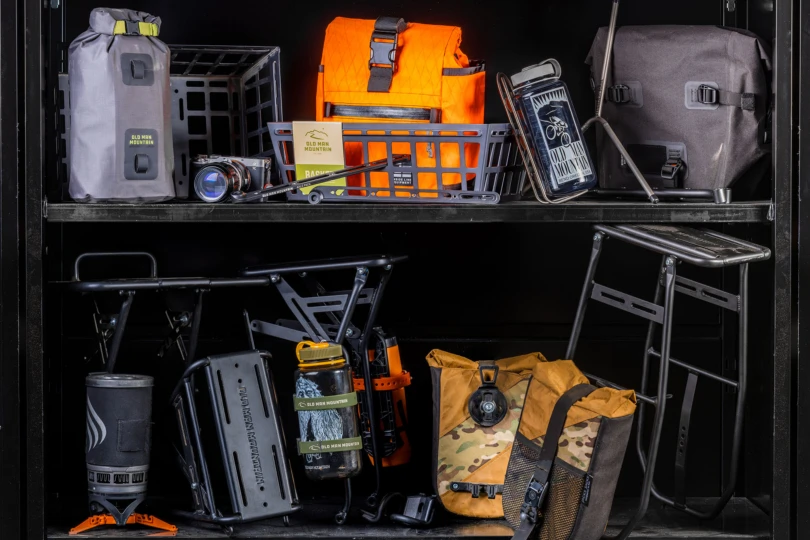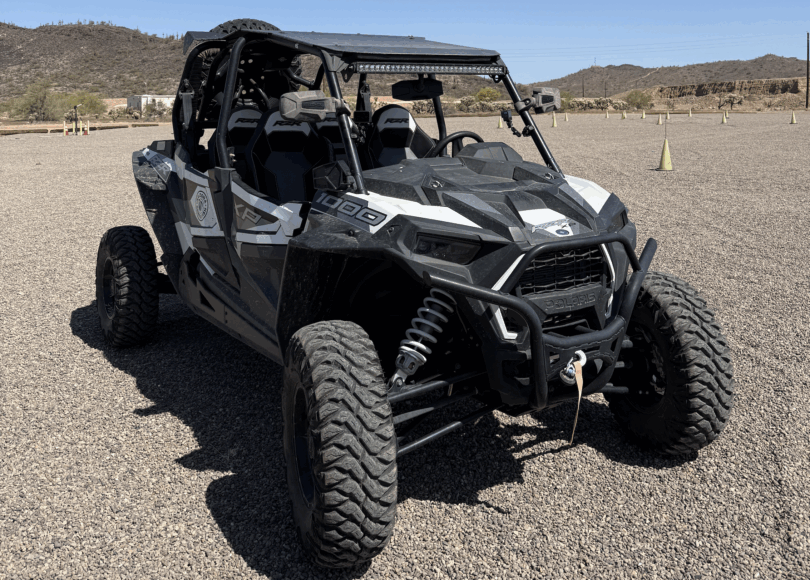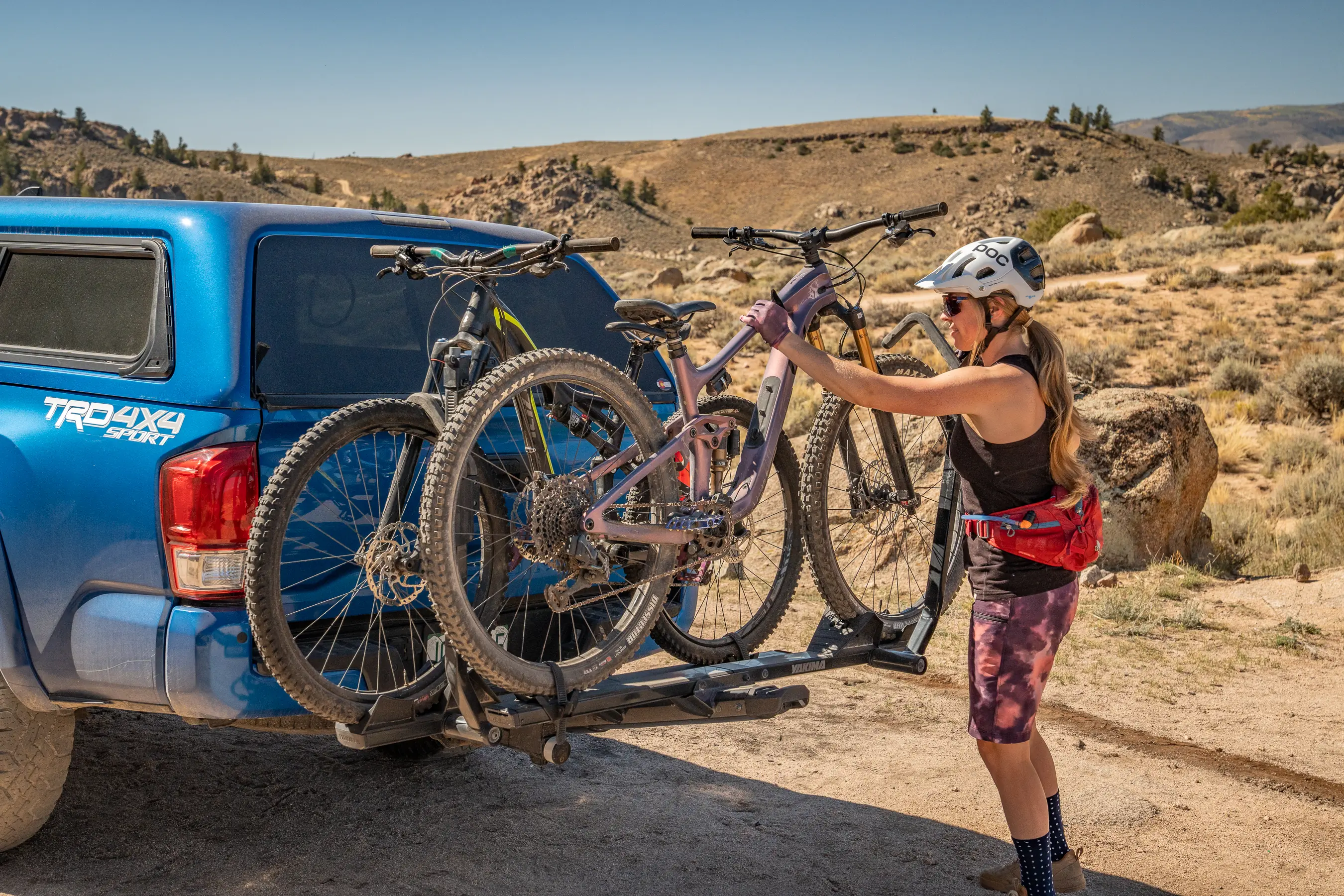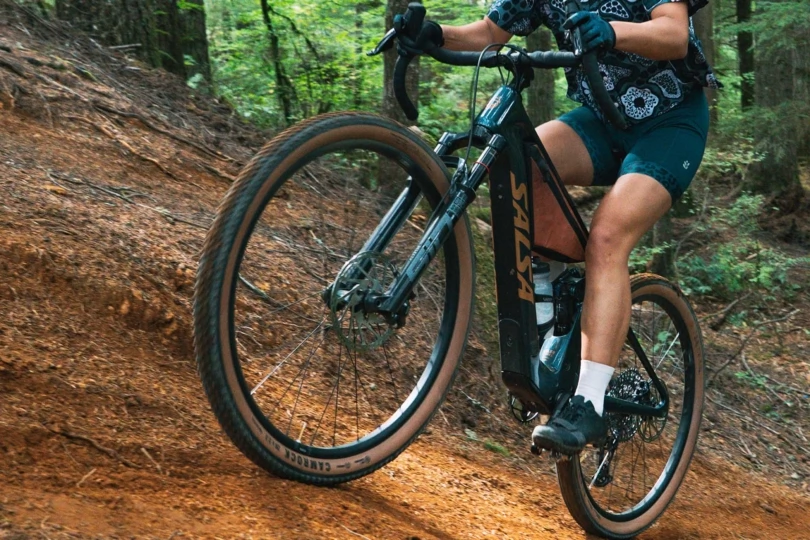What makes the new Canyon helmets so different? It’s hard to tell until you really look at them. Under close observation, you’ll notice the chin strap isn’t a strap at all. It’s a rigid plastic structure that has an adjustment knob on the bottom.
This article was originally published on BikeRumor.
Canyon CFR Helmets: Rethinking Retention
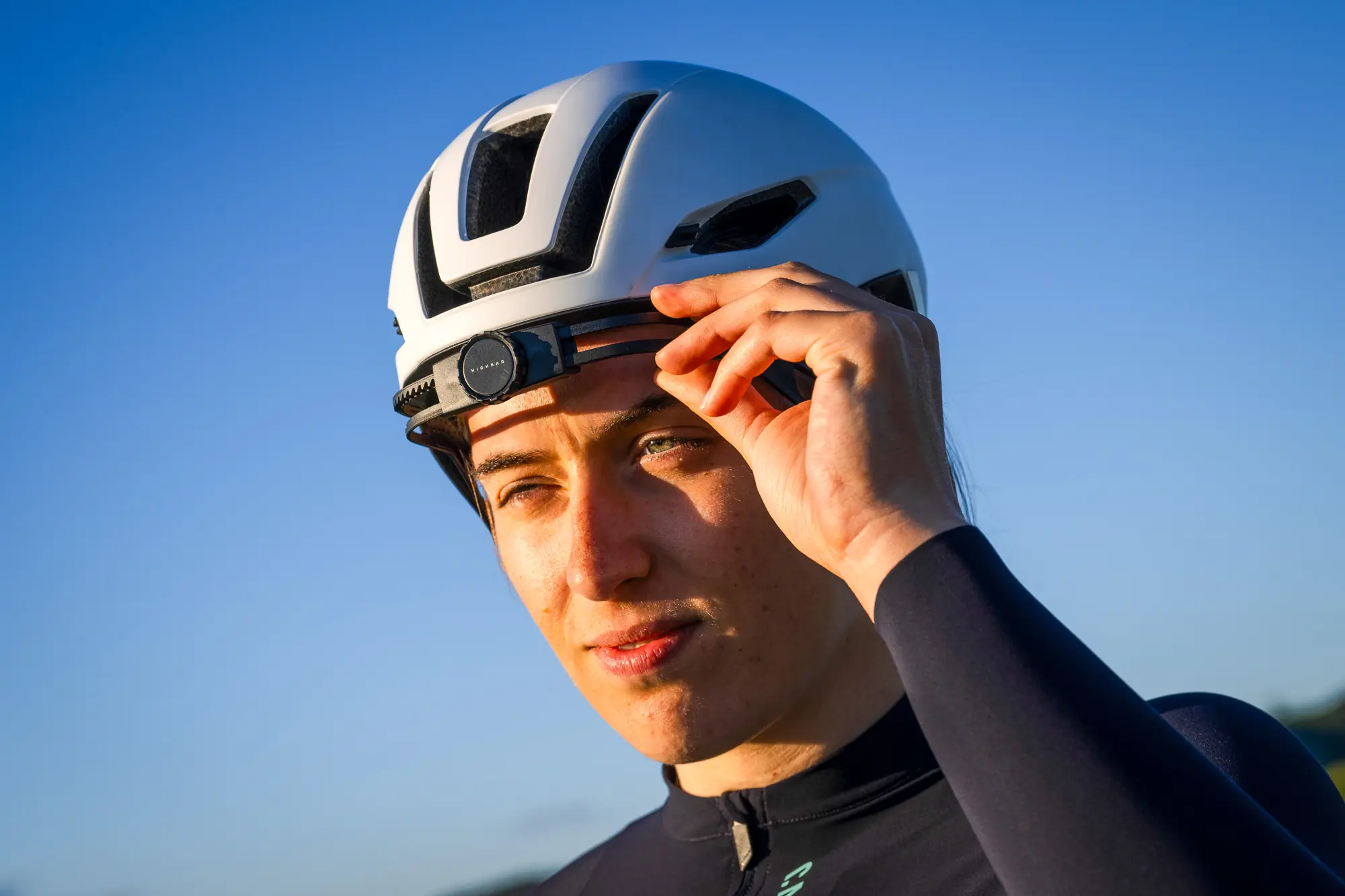
When I first saw the Canyon CFR’s “non-chin strap,” I asked, “Why?” Helmet chin straps have worked fine for eons. It seemed to be a solution to a problem that didn’t exist.
Canyon claims it solves a reasonably common problem that most don’t even know could be plaguing them: improper helmet retention. Yes, most of us know how to choose the correct size, but the culprit isn’t the size of the helmet but how it is secured. If the helmet doesn’t stay positioned correctly during a crash, chances are it won’t be much help, no matter how much other safety tech is in it.
Canyon partnered with ingredient brand HighBar to help solve the retention issue, which resulted in the “non-chin strap.”
How Is the HighBar System Better Than a Chin Strap?
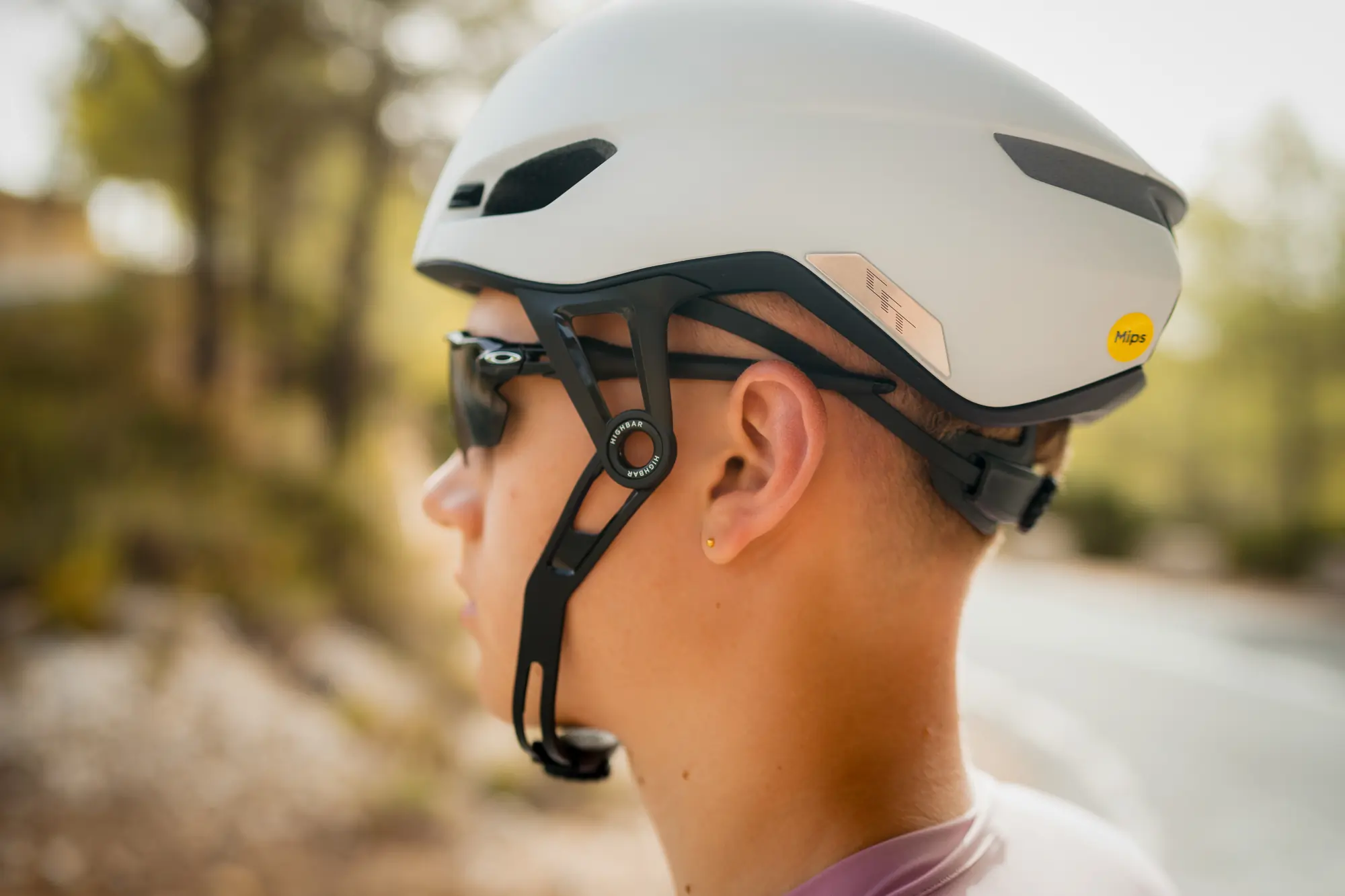
First off, Canyon claims the HighBar system saves watts. In wind tunnel testing, the Canyon team found the HighBar system tested 7 W faster at 31 mph than a conventional helmet strap. If you crank up the speed even more, to 37+ mph, you could see a 10-20W savings — 33 seconds over 62 miles.
Canyon claims the HighBar system is also quieter. We all know straps move in the wind, especially when fitted improperly. HighBar takes this out of the equation. The rigid structure lets the strap slice through the air. Wind tunnel tests have shown that the HighBar system reduces sound levels by 6-7.5dB compared to conventional helmet straps.
The lack of a conventional chin strap can also keep you cooler. The HighBar never touches the skin; it hovers around it, as does the BOA-style adjustment dial mounted under the chin. Canyon claims that helmets equipped with HighBar are up to 4.8 degrees cooler than helmets that use traditional webbing straps.
The ratchet dial offers easy, one-handed adjustment and is not as bulky as it sounds (according to a BikeRumor editor who saw it at the Sea Otter Classic).
Canyon CFR Helmet Line




Canyons’ new CFR helmet models come in two offerings: Disruptr for road, gravel, and mountain use and the more aero Stingr. Both models use the HighBar fit system.
Disruptr CFR
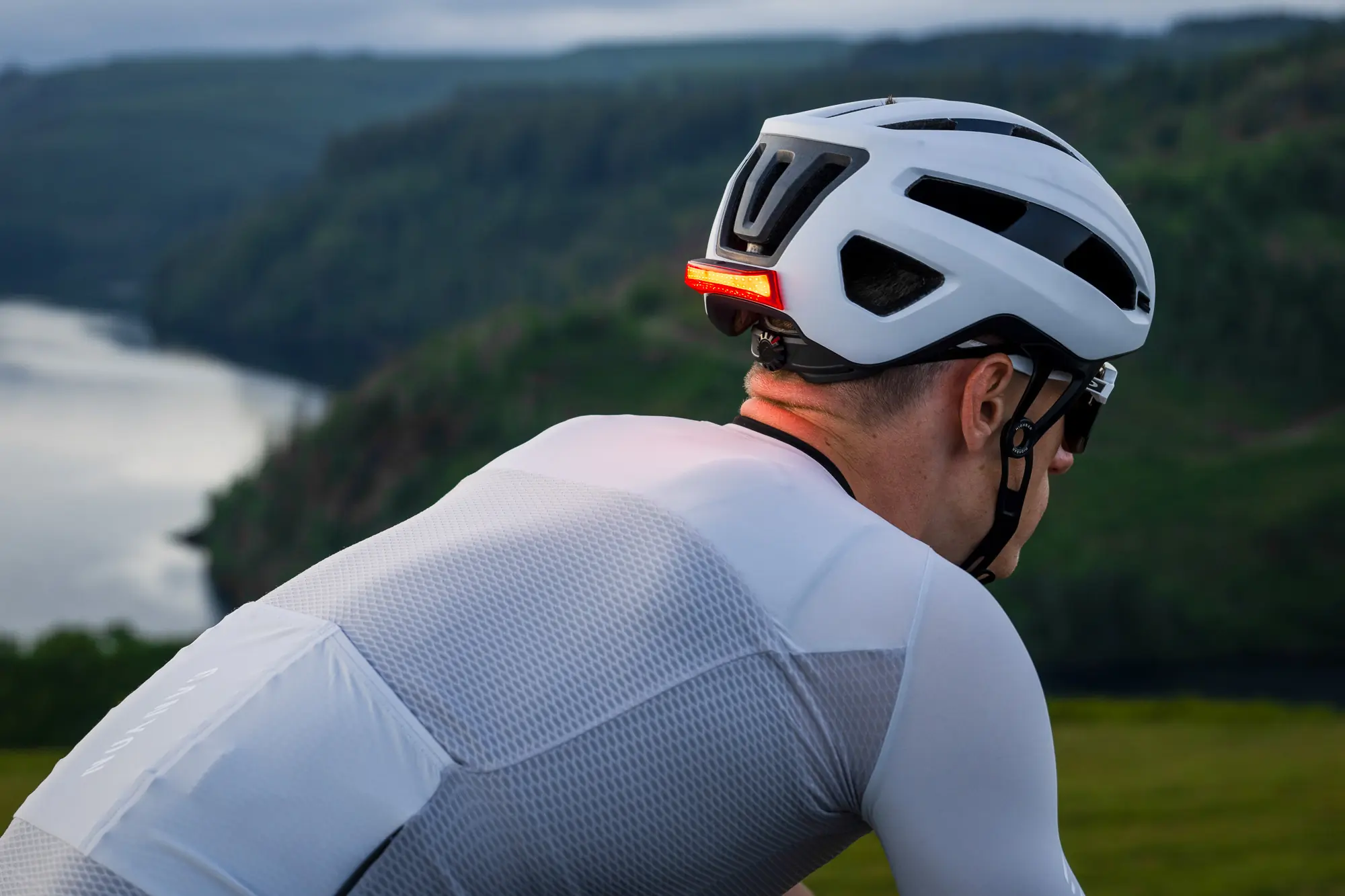



The Disruptr CFR is the road/gravel/XC-mountain pro-level helmet focusing on ventilation for all-day missions. The Disruptr also comes with a magnetic port in the rear to take a Canyon rear light. The light looks to be an excellent safety addition for training and commuting. The light has five modes and up to 30 hours of run time.
- Color options: White, Black, and Grey
- Weight: 275 g (M size/CE standard)
- Price: $330
Stingr CFR




The Stingr CFR is a race-ready aero helmet built for podium steps and personal bests. Canyon claims it weighs the same as the all-around Disruptr.
- Color options: White and Black
- Weight: 275 g (M size/CE standard)
- Price: $330
Both helmets feature interior Mips Air Node crash protection. They are available in Small, Medium, and Large, exclusively from Canyon.com or via the Canyon app, where you can also find service instructions.
The new Canyon CFR helmet line arrives after the release of the Canyon CFR shoes, rounding out nearly everything you need to ride — provided by Canyon. All the new CFR offerings (shoes and helmet) are for pro-level performance, whether riding road, cross-country, ultra-distance mountain, or gravel.
Canyon helmets can also be seen in person at Canyon’s Factory Service locations in Europe and North America. Look for a review and thoughts as soon as ours arrives.
